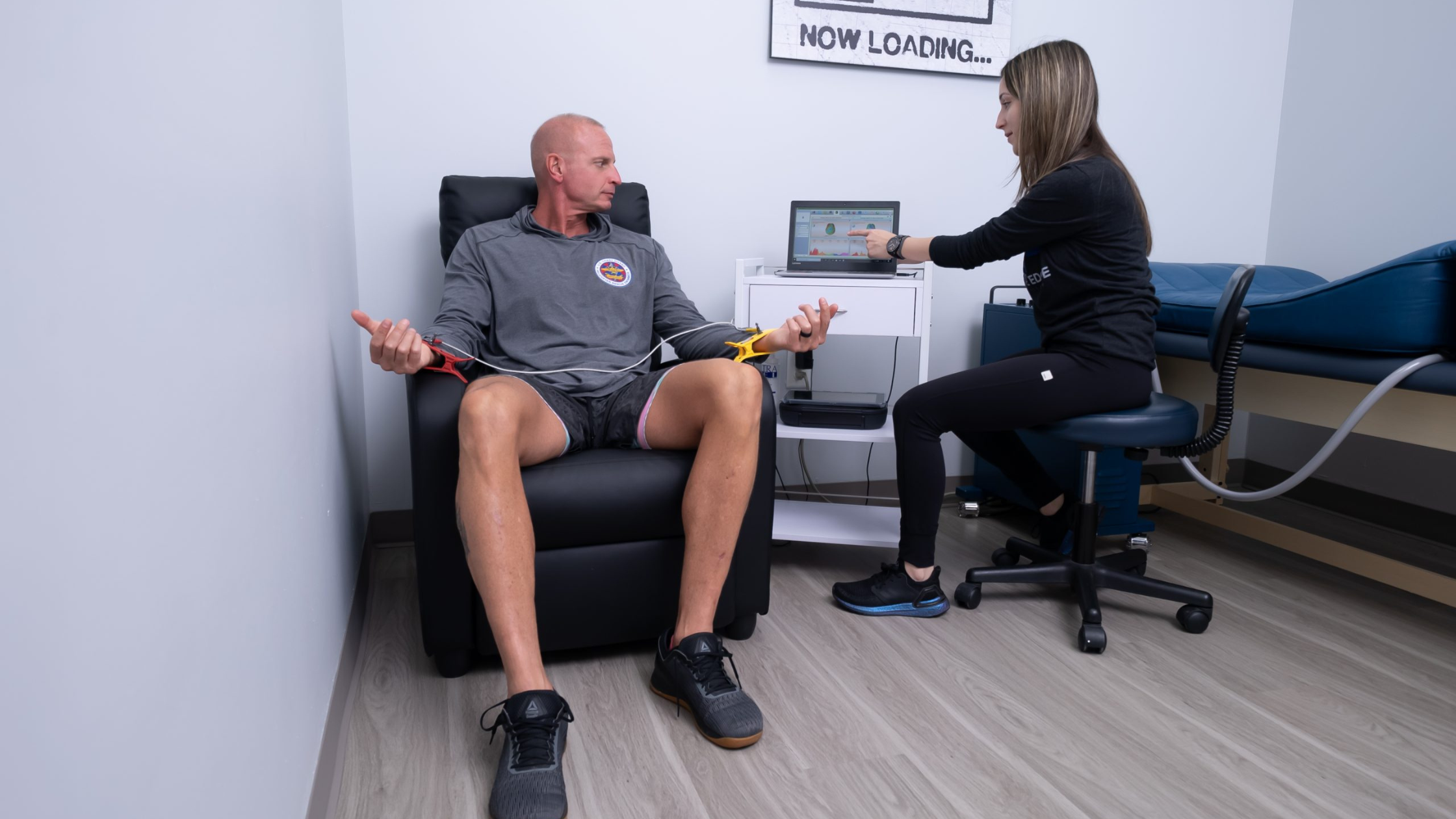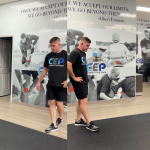
How to Accelerate Your Physical Therapy with HRV Testing
Researching new ways like HRV testing to accelerate your physical therapy? Or are you dealing with the nagging effects of long-COVID or other illnesses?
As leaders in providing Heart Rate Variability (HRV) technology to physical therapy patients across Tampa Bay, we consider HRV one of the most important measures of your overall health. We’ve seen great results in patients who utilized HRV testing as a key accelerator to reaching PT goals and overall optimal health. Here’s how:
Optimal Health Screening
Heart rate variability testing is a pain-free test that takes just five minutes to complete and provides insight on what treatments we can add to your session to get you feeling your best. The HRV assessment is a proven Optimal Health Screening tool for:
– Immune Function
– Athletic Recovery and Readiness
– Stress Response
– Many others
Plus, here’s a sample of critical metrics reported by HRV therapy:
– Stress Index
– Neurohumoral Regulation (endocrine function)
– Energy Resources
– Psychoemotional State
– Sleep Health for recovery
– Biological Age
– Biorhythm in real time for entire day of testing (for optimal performance time windows – both mental and physical)
If you’ve been struggling with any of the issues or metrics above then our HRV test is perfect to help you narrow down what’s leading to your performance or therapy plateaus.
SCHEDULE YOUR PT APPOINTMENT NOW.
Why is Your HRV Score Important?
Heart Rate Variability measures the time between heartbeats. A heartbeat is the heart muscle contraction, while the heart rate is the number of contractions in a measure of time. However, heart rate variability is not constant and varies with activity and lifestyle. Time fluctuates between individual heartbeats, and this increases or decreases the heart rate variability number.
Generally speaking, HRV indicates health in a couple of ways. A high HRV score means a stronger Autonomic Nervous System or, simply put, the ability of our bodies to manage day-to-day stressors. On the other hand, as an HRV score is lowered, it may signify high stress and poor health.
The heart rate is an autonomic response, meaning that it is something that happens without our being conscious of it through the autonomic nervous system. However, things we do can affect this process. Psychological factors such as stress and physical activity have an effect on the automatic heart rate.
HRV Testing to Personalize Your PT
Heart Rate Variability therapy includes a HRV assessment report that can identify imbalances in your nervous system that will help our physical therapist design an individualized plan to improve your overall health and well-being while creating a more effective rehabilitation program to maximize your results.
By objectively measuring the balance between your nervous systems and making adjustments to your everyday life, this assessment can also help reduce stress levels so you can increase overall health and mental function.
What Can Affect Your HRV Testing and Score?
The brain processes information in the hypothalamus which sends signals to the rest of the body either to stimulate or to relax different functions. It responds to a poor night’s sleep, an argument with your spouse, exciting news of a promotion or a tasty meal at your favorite restaurant.
If you experience persistent instigators like stress, poor sleep, unhealthy diet, dysfunctional relationships, lack of exercise, etc., this balance is disrupted and your fight-or-flight response shifts into overdrive.
How HRV is Measured
There are a couple of ways to measure HRV, especially when it comes to physical therapy. One way is through an electrocardiogram or ECG. Another form of measurement is photoplethysmography or PPG.
The clinical HRV assessment system we recommend at CEP uses simple ECG sensors on the your wrists and only takes about five minutes to complete
What Low HRV means for your optimal health goals
In general, a low heart rate variability score can be a sign of current or future health problems. Your body is essentially signaling that it is struggling with new or changing conditions. A low HRV also is found more often in people with higher resting heart rates. A faster heart beat means less time between beats which removes opportunity for variability. Low HRV can be found in patients with conditions like diabetes, high blood pressure, heart arrhythmia, asthma, anxiety and depression.
Heart rate variability is an individual metric, and it is not something readily compared from person to person. Generally speaking, higher HRV scores indicate that the person’s ANS is healthy and they can easily switch between speeding up or slowing down their heart rate.
Though general trends exist, younger people typically have a higher HRV than older people, and men may have higher HRV numbers than women. Athletes as a whole have significantly higher HRV numbers than an average person.
More Benefits of Measuring Heart Rate Variability
There is a lot of value in knowing how your heart rate is performing, but here are some key benefits that we like to highlight:
1. Understand How Your Body Responds to Triggers
HRV therapy creates awareness around the healthy habits that deliver a favorable impact on your health. As a result, it typically will influence positive behavioral change.
2. Expose the Link Between Stress, Pain, Mood and Injuries
Chronic stress and pain from various sources can lead you on a path to drastically reduced health, poor athletic performance and delayed/inability to heal from an injury.
3. Identify Overuse Injuries Even Before They Happen
HRV data can determine when you’re less likely to perform at your best or when your body needs more recovery time – it can even signal when you’re at a higher risk for injury.
4. Predict Training Response (High or Low Intensity)
Your therapist can customize treatments with HRV – high HRV may respond better to higher intensity training, while low HRV may do better with a high volume, low intensity approach.
How to Accelerate PT and Improve Your HRV
Stress management, physical therapy interventions like the NEUBIE or PEMF, meditation, diaphragmatic breathing and cardiovascular fitness have been shown to improve heart rate variability over time. Our physical therapists will work with you to develop the right plan to address and improve imbalances.
Learn more about our HRV and NEUBIE Master Reset in this Case Study.
Contact CEP to Accelerate Your Physical Therapy
Our expert physical therapy team at CEP is passionate about finding solutions to help you improve your heart rate variability, accelerate your physical therapy and reach your optimal health goals. Contact us today to learn more about our HRV testing and how it can help you or request an appointment now.

 Previous Post
Previous Post Next Post
Next Post


